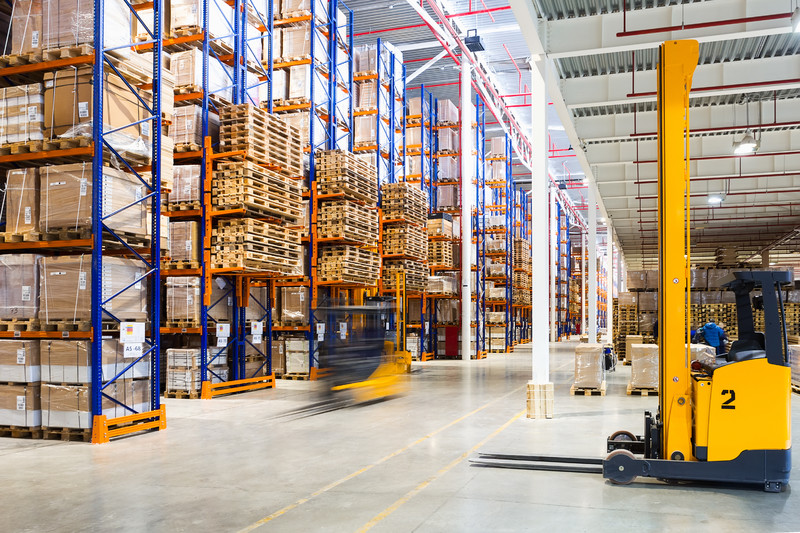In the bustling landscape of commerce, the need for efficient and secure storage solutions has never been more pronounced. As businesses expand and evolve, so do their requirements for storing goods, equipment, and documents. Enter commercial storage facilities, the unsung heroes of logistics and inventory management. In this article, we delve into the world of commercial storage facilities, exploring their significance, features, and the key factors that contribute to their effectiveness.
Understanding Commercial Storage Facilities
Commercial storage facilities, often referred to as warehouses or storage units, are dedicated spaces designed to accommodate the storage needs of businesses. These facilities come in various shapes and sizes, ranging from small storage units to sprawling warehouse complexes. Their primary function is to provide secure, organized, and accessible storage for a wide range of items, including inventory, equipment, archives, and merchandise.
Key Features of Commercial Storage Facilities
Security Measures: Security is paramount in commercial storage facilities. These spaces are equipped with state-of-the-art security systems, including surveillance cameras, access control systems, and alarm systems. Some facilities also have onsite security personnel to further enhance safety and deter unauthorized access.
Climate Control: Certain items, such as sensitive documents, electronics, and perishable goods, require specific environmental conditions to maintain their integrity. Commercial storage facilities often offer climate-controlled storage units, which regulate temperature and humidity levels to prevent damage and deterioration.
Customizable Storage Options: One size does not fit all when it comes to storage needs. Commercial storage facilities typically offer a range of storage options to accommodate diverse requirements. From small lockers to large warehouse spaces, businesses can choose the size and configuration that best suits their needs.
Accessibility: Accessibility is key for businesses that frequently need to access their stored items. Commercial storage facilitie’s provide convenient access options, including extended operating hours, onsite loading docks, and drive-up units. Some facilities even offer 24/7 access for added flexibility.
Inventory Management Solutions: Managing inventory efficiently is essential for businesses to streamline operations and minimize costs. Many commercial storage facilitie’s offer inventory management solutions, such as barcode scanning, inventory tracking software, and fulfillment services, to help businesses keep track of their stored items and optimize inventory levels.
Flexible Leasing Options: Flexibility is crucial for businesses that may experience fluctuations in storage needs over time. Commercial storage facilitie’s typically offer flexible leasing options, including short-term and long-term leases, as well as scalable storage solutions that can accommodate growth or downsizing.
Benefits of Commercial Storage Facilities
Cost Savings: Renting commercial storage space is often more cost-effective than expanding onsite storage facilities or investing in additional warehouse space. Businesses can save on construction costs, maintenance expenses, and property taxes by opting for offsite storage solutions.
Enhanced Security: Commercial storage facilities employ robust security measures to protect stored items from theft, vandalism, and damage. By storing valuable inventory and equipment in a secure facility, businesses can mitigate the risk of loss and liability.
Improved Efficiency: With organized storage spaces and streamlined inventory management processes, businesses can operate more efficiently and effectively. Easy access to stored items reduces retrieval times and minimizes disruptions to daily operations.
Scalability: Commercial storage facilities offer scalable storage solutions that can adapt to changing business needs. Whether a business is expanding, downsizing, or relocating, it can easily adjust its storage space requirements without committing to long-term leases or costly investments.
Risk Mitigation: Storing inventory offsite reduces the risk of damage from environmental factors, such as floods, fires, and extreme temperatures. Climate-controlled storage units provide an added layer of protection for sensitive items, ensuring their integrity and longevity.
Choosing the Right Commercial Storage Facility
When selecting a commercial storage facility, businesses should consider several factors to ensure they find the right fit for their needs:
Location: Choose a facility that is conveniently located near your business or customer base to minimize transportation costs and maximize accessibility.
Security: Prioritize facilities with robust security measures, such as surveillance cameras, access control systems, and onsite security personnel, to safeguard your stored items.
Storage Options: Assess your storage needs and choose a facility that offers the appropriate size and type of storage units to accommodate your inventory and equipment.
Accessibility: Look for facilities with convenient access options, such as extended operating hours, onsite loading docks, and drive-up units, to facilitate easy retrieval and storage of items.
Reputation: Research the reputation and track record of the facility, including customer reviews and ratings, to ensure reliability and trustworthiness.
Additional Services: Consider facilities that offer additional services, such as inventory management, fulfillment services and packing supplies to enhance convenience and efficiency.
Conclusion
Commercial storage facilities play a vital role in the logistics and inventory management strategies of businesses across various industries. By providing secure, organized, and accessible storage solutions, these facilities help businesses optimize space utilization, enhance security, and streamline operations. Whether storing inventory, equipment, or documents, businesses can benefit from the cost savings, efficiency gains, and flexibility offered by commercial storage facilities. By choosing the right facility and leveraging its features and services, businesses can effectively meet their storage needs and focus on growing their operations with confidence.







